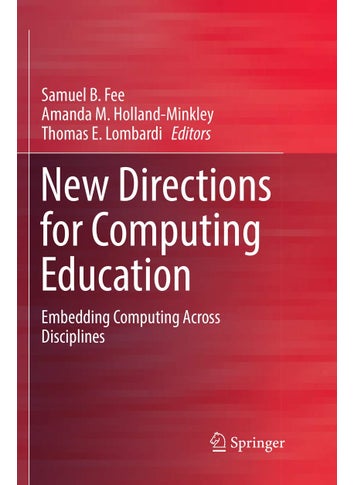| About the Author | Samuel B. Fee is a Professor and Chair of Computing & Information Studies at Washington & Jefferson College. His research interests extend into the realms of computing, education, and digital media production. His inquiries within these areas are aimed at better answering a few specific questions, including: How can we best learn and conduct research within the broader realm of computing? How does technology change the way we interact with one another? How do visuals and interfaces impact our abilities to communicate and learn? And, beyond the quantitative methodologies of current Social Science research, how do we reinvigorate the discourse concerning the Art of teaching? He previously co-edited the volume The Role of Criticism in Understanding Problem Solving. He publishes regularly on the topics of computing pedagogies and educational research as well as software development and digital media.Amanda M. Holland-Minkley is an Associate Professor of Computing & Information Studies at Washington & Jefferson College. Her research explores novel applications of problem-based and hands-on pedagogies to computer science education, both at the course and the curricular level. These applications strive to transform computer science content into forms useful and accessible to students from a diversity of disciplines. She is also highly engaged in undergraduate research, with recent projects falling at the intersection of information security, data management, and machine learning.Thomas E. Lombardi is an Assistant Professor of Computer Information Systems in the School of Business at the University of the Virgin Islands. His research focuses on the application of data science and interdisciplinary computing to a wide range of subjects such as digital humanities, networking and bioinformatics. He is particularly interested in developing pedagogies for teaching data-oriented concepts to a broad audience for the purpose of improving civic education. Most recently his theoretical research has addressed the potential role of computation in the analysis of iconography. Specifically, this project applies data mining and machine learning techniques to large repositories of artwork. |
Free & Easy Returns
Best Deals




